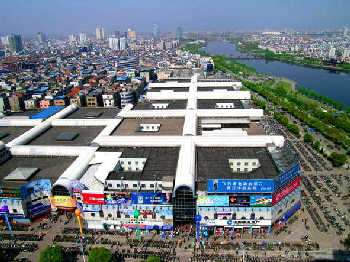In 2000, Forbes China released the result of the Top 50 Rich in China, and nine entrepreneurs from
Zhejiang Provincewere on the list. In 2001, 17 out of the Top 100 Rich were from Zhejiang. Among the top 500 private enterprises, more than one third are from Zhejiang. Although Zhejiang province covers only 1.06 percent of the national territory, its GDP has reached the fourth throughout the country.
Zhejiang merchants can be found virtually everywhere. There is a Zhejiang Village inBeijing. InShanghai, there are more than 50,000 Zhejiang enterprises, with a total investment of 50 billion yuan (US$6.21 billion). Zhejiang merchants also have businesses in Europe, Africa, and even the Middle East.
Wu Jinglian, the famous economist said: "Zhejiang is a place full of entrepreneurship. People here are born with savvy and acumen as well as hard-working spirit. They are courageous to take risks. They are really admirable."
Zhong Pengrong, the famous economist, thinks that Zheijiang merchants have a very strong sense of market. Besides, Zhong added, Zhejiang merchants are also famous for their fortitude. They believe that they can achieve any goals by their efforts.
 The history of Zhe merchants
The history of Zhe merchants
Although Zhe merchants only became well known in the last few decades, their history could be dated back to 473 BC. Fan Li, the earliest ancestor of Chinese merchants, was the famous government official of Yue (473- 306BC), which was located at today's Zhejiang.
In the 18th century, the emergence of capitalism in China, together with the Shanghai port opening to the outside world, provided a good opportunity for Zhe merchants. Zhe merchants groups, represented byNingbomerchants, played an active role in the modernization of Shanghai.

Yiwu small-commodities trading center
Ningbo merchants are the best representatives of Zhe merchants. Rising in the 19th century, they are considered to be the most powerful regional merchants group after Hui and Shanxi merchants. Their hardworking, their willingness to take risks, and their pragmatic attitudes help them stand out in China's business sector. Other parts of Zhejiang, such as Wenzhou, Yiwu, and Taizhou, all have a tradition of doing business. It is believed that people in Zheijiang are often born with the consciousness of market and business.
